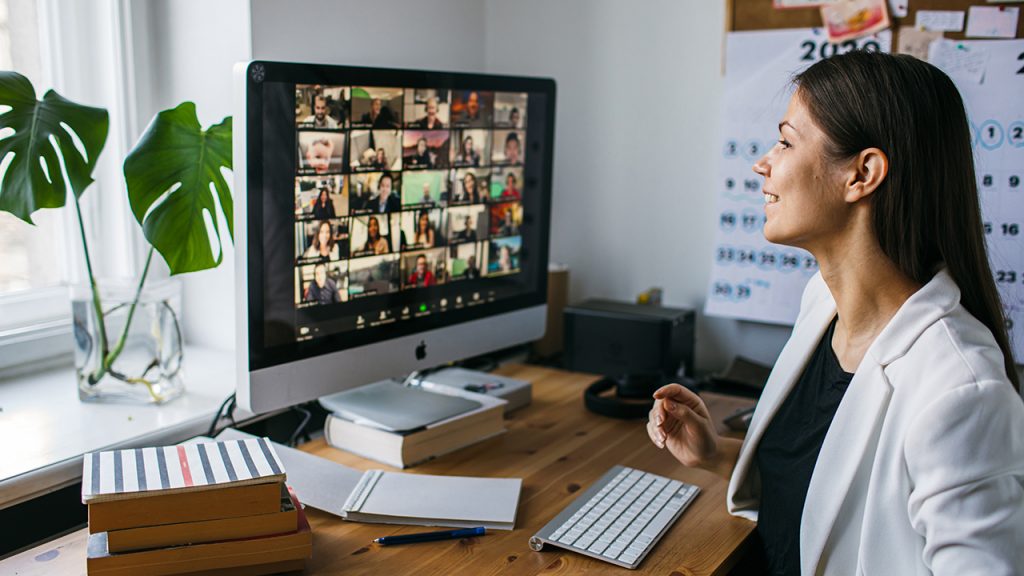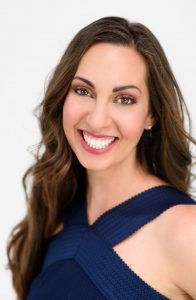How to speak the hidden language of charisma — plus the one thing you shouldn’t do on Zoom
In her book, “Cues,” Vanessa Van Edwards says everyone, not just extroverts, can master social cues that signal confidence through body language, facial expressions and vocal inflection.


There’s an invisible language being spoken all around us 24/7, which has an incredible impact on our lives every day. That’s the signals we send to others as social cues through our body language, facial expressions, word choice and vocal inflection.
Author and speaker Vanessa Van Edwards has been studying the language of social cues for more than 10 years, exploring the science of persuasion and charisma. Her latest book, Cues, is a guide to this veiled language.
“Charisma can be cultivated,” Van Edwards says. When I started this research 17 years ago, I noticed that highly charismatic people use a very specific set of cues to signal to the world their warmth, their competence and their confidence. And I wondered, ‘What if I could catalog those cues and codify them, to make them into a usable language for all of us to learn?”
In high school, Van Edwards read Dale Carnegie’s iconic book, How To Win Friends and Influence People. She points out that people skills were taught by extroverts.
“Extroverts would take this natural superpower that they had, and they would try to teach non-extroverts basically how to be more extroverted. … And the problem is if extroverts teach people skills, everyone who is not an extrovert is basically pretending to not pretending to not be themselves or being inauthentic. And that is one of the most exhausting ways to interact.”
Van Edwards says the key is to find “you flavor of charisma” to connect authentically with people and to make a good impression.
Two years into the pandemic, everyone is well acquainted with Zoom. While we are slowing returning to more in-person engagements and events, virtual meetings are the norm. Van Edwards says the biggest mistake she hears on Zoom meetings or calls is how people introduce themselves by using the question inflection on their own name, i.e. their voice goes up at the end of a sentence.

“When we go up at the end of our sentence, it sounds like we’re asking everything we’re saying,” Van Edwards says. “When you do that, you are telling people, ‘I am a little uncomfortable and you should be uncomfortable to.’”
She adds: “People do not like listening to question inflection because it reminds them of liars. In our research, we found that liars typically ask their lies.”
As for returning to more in-person interactions, Van Edwards suggests being the “first liker.”
“[The situation that] creates awkwardness of any interaction is not knowing what to do,” Van Edwards says of when people greet each other and don’t know whether to hug, shake hands or stay 6 feet away. She suggests if you want to keep your distance, signal that. Same goes for handshakes (stick your hand out as you approach) or stretch your arms out if you’re going in for a hug.
“The more clear you are with your signals, the more someone is going to feel more at ease from the moment they first see you,” Van Edwards says.
Whether it’s a Zoom call or walking into a room, the one piece of advice Van Edwards like to give anxious folks is to breathe.
“When we’re nervous, we tend to hold our breath and … we answer all the way at the top of our breath,” she says. Before answering the phone, hopping on Zoom or walking into a room, Van Edwards suggests taking a couple of breaths, relaxing and speaking while exhaling. “That breath is going to bring your voice down. It’s going to relax your body. It’s going to keep you more still and it’s also going to make you feel more confident.”
Trusted, accurate, up-to-date.
WDET strives to make our journalism accessible to everyone. As a public media institution, we maintain our journalistic integrity through independent support from readers like you. If you value WDET as your source of news, music and conversation, please make a gift today.
